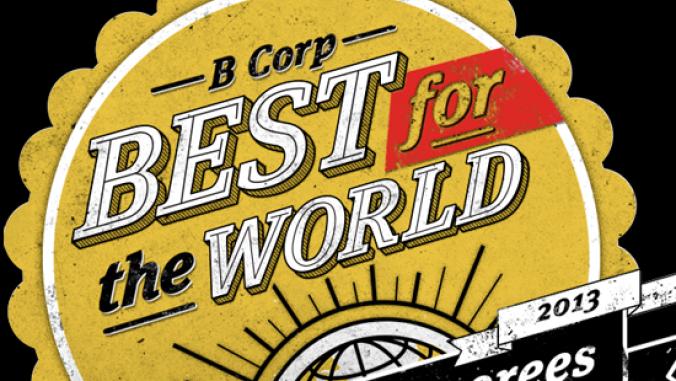Levi's Revamps Supply Chain Engagement to Focus on Workers' Rights
<p>The company's new guidelines, issued 20 years after it set terms of engagement focused on compliance in its supply chain, now aim to help the workers in its global supply chains prosper while also protecting the environment.</p>

Twenty years ago, Levi Strauss issued its first Terms of Engagement with its supply chain, aiming to bring suppliers in line with the company's directives on labor, health & safety and environmental principles.
Today, on the opening day of the 2011 Ceres Conference, Levi's president, John Anderson, announced new Terms of Engagement that aim to step up the commitments put in place two decades ago.
"[T]his new standard isn't just for apparel companies like ours. It establishes a new, higher set of expectations that investors, activists, and governments should all promote," Anderson said in his speech for the conference. A copy of the prepared remarks were shared with GreenBiz.com before Anderson's talk.
The new Terms of Engagement focus on developing programs among suppliers that help companies and their employees align with the U.N. Millennium Development Goals, including specifically:
• improving maternal and child health;
• combating HIV/AIDs, and other diseases;
• promoting gender equality and empowering women;
• eradicating extreme poverty and hunger; and
• ensuring environmental sustainability
Levi's has committed to a nine-month timeline to implement the terms, during which time it will work with NGOs, other apparel manufacturers, unions and suppliers from around the world. By the end of the process, Levi's will publish a white paper, request public comment on the terms, and then begin implementing the terms among its supply chain in May 2012.
Given the company's past history, Anderson is optimistic about the ability of the new Terms of Engagement to make an impact.
"In the broadest sense, our Terms of Engagement worked in ways bigger than we ever imagined," Anderson said. "Not only did more than 90 percent of our suppliers accept them, we discovered that we'd set a new standard. Before long, our Terms of Engagement became the new normal. Almost every apparel company with a global supply chain established their own version."
Adopting worker rights-specific goals for its global supply chain is an evolution of earlier compliance efforts, which Anderson said were focused more on factory auditing -- making sure facilities were safe and non-polluting -- rather than helping workers prosper.
"[I] our ultimate goal is to improve not just factory conditions, but to make a material difference to the people and communities in our supply chain, then we need a more holistic approach, a more human perspective," Anderson said.
Levi's has of course been working for many years on its environmental initiatives as well as its worker-rights efforts. Among the many efforts we've covered in the past, the most recent include: Water>Less jeans, which reduce the water needed to make a pair of jeans by 96 percent; Levi's efforts on a product footprint tool for the outdoor industry; and a "Build a Better Clothesline" contest, to encourage people air-dry their clothes to save energy and reduce emissions.
Anderson described the new Terms of Engagement as the next phase of true corporate sustainability.
"We see this as an indispensable component of a true sustainable growth story. It is a business plan and an investment plan that will work," Anderson said toward the close of his speech. "So my message to you is: Please join us. Help convince our industry and other industries that improving the quality of life ought to be the real touchstones for the next stage of activism and engagement."
The company published the video below in conjunction with the announcement. More details are available at LeviStrauss.com.





